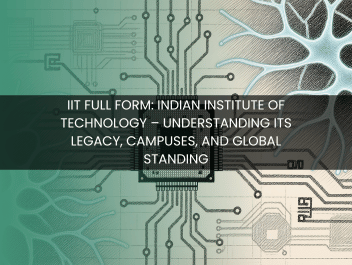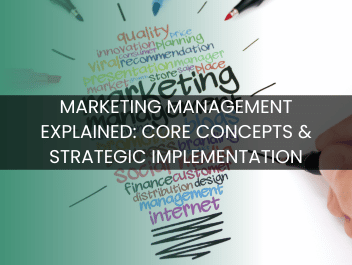
Exploring Career Paths After Engineering: Your Guide to the Future
In a world where technology evolves at lightning speed, the journey doesn't end with an engineering degree; it merely begins. The vast field of engineering offers a plethora of career options after engineering, and choosing the right path can be as daunting as it is exciting. Whether you're fresh out of college or an experienced professional seeking new challenges, understanding the myriad jobs after engineering can pave the way to a successful and fulfilling career.
Engineering graduates find themselves at a crossroads, evaluating traditional career paths or exploring newer, cutting-edge fields. Pursuing further education, considering an MBA, or joining the civil services are established routes many opt for, while others are embracing opportunities in emerging technologies such as data science and AI. Meanwhile, a career after IT engineering opens doors to full-stack development, cybersecurity, and blockchain roles, reflecting the sector's dynamic nature.
This article serves as your guide to navigate the diverse career landscape post-engineering. From entrepreneurship and innovative startup roles to public sector undertakings and defense services, exploring non-traditional paths and recognizing the importance of skill development is vital. Discover how aligning your career choices with personal interests and market trends can lead to future success, all while maintaining sustainability and an eye on lifelong learning.
Table of Content
- 1. The Evolving Landscape of Engineering Careers
- 2. Evaluating Traditional Career Paths
- 3. Pursuing Further Education and College Placements
- 4. Considering an MBA for Career Advancement
- 5. Joining the Civil Services
- 6. Embracing Emerging Technologies and Fields
- 7. Growth in Data Science and AI
- 8. Opportunities in Full-Stack Development
- 9. Roles in Cybersecurity and Blockchain
- 10. Entrepreneurship and Startups
- 11. Becoming an Entrepreneur
- 12. Joining Innovative Startups
- 13. Careers in Public Sector Undertakings (PSUs)
- 14. Competitive Exams for Defense Positions
- 15. Non-Traditional Career Options
- 16. Exploring Creative Industries: Gaming and Design
- 17. Careers in Green Engineering
- 18. Importance of Skill Development and Continuous Learning
- 19. Conclusion: Aligning Career Choices with Personal Interests and Market Trends
The Evolving Landscape of Engineering Careers
The engineering landscape is rapidly evolving, offering a plethora of career options after engineering for graduates. As technology progresses, engineering careers are no longer limited to traditional paths.
Key Career Paths:
- Software
Development
- Software Developer
- Full-stack Developer
- Digital
Marketing
- Utilizes analytical skills from engineering
- Electrical
Engineering
- Electrical Engineer positions in multiple sectors
- Civil
Engineering
- Civil Engineer roles in infrastructure projects
Popular Career Options:
- Management Roles
- Engineers with strong soft skills can climb corporate ladders
- Government Sector
- Offers stable job opportunities and other benefits
Studies Post Engineering:
Furthering education can also unveil new career paths, like specialized master’s degrees or certifications.
Average Salaries:
- Software Engineer: Competitive annual salary, often leading industry charts.- Civil Engineer: Offers steady growth across projects.
Conclusion:
The career after it engineering can be diverse, as engineers today have the flexibility to align their career path with their personal and professional goals. Job opportunities abound across an array of fields, making the choice of jobs after engineering vast and varied.Evaluating Traditional Career Paths
Traditional career paths in engineering have long been a reliable choice for many graduates. These routes often involve roles in industries like manufacturing, construction, and utilities. Graduates can pursue positions such as Mechanical Engineers or Production Engineers, leveraging their technical education to work in production plants or design facilities. These roles generally offer stable employment with decent growth prospects and good pay. However, as industries evolve with technology, the expected skills and responsibilities in these fields are also changing. Staying updated with new technologies is crucial for professionals opting for these classic paths.
Pursuing Further Education and College Placements
After completing an engineering degree, further education can be a valuable pathway, especially when pursuing specialization. Engaging in master's programs or seeking certifications in emerging technologies can open new career options. Additionally, college placements provide a head start, as institutions partner with companies to offer job opportunities. Engineering graduates often secure positions while still in school, which not only benefits them financially but also solidifies their career path early on. Continued learning, paired with securing good placements, can greatly enhance job prospects and career satisfaction.
Considering an MBA for Career Advancement
An MBA is a popular option after engineering for those looking to shift towards management or executive roles. It equips graduates with business acumen, strategic thinking, and leadership abilities. For engineering students, combining technical expertise with business knowledge can create powerful career opportunities. The MBA path allows professionals to aspire to management roles that involve decision-making and company operations. This route is ideal for those who plan to eventually occupy positions such as project managers or CEOs, providing ample skills to transition smoothly from technical roles to business leadership.
Joining the Civil Services
Joining the civil services is a prestigious career path that offers stability and a chance to serve the public. Engineering graduates find opportunities within government sectors that align well with their technical background. The civil services examination attracts those interested in policymaking, infrastructure, and public projects. This career path demands a strong understanding of soft skills, along with a solid foundation in analytical processes common in engineering disciplines. Working in civil services combines technical prowess with public administration, providing a fulfilling role that contributes significantly to societal development.
Embracing Emerging Technologies and Fields
Engineering graduates today enjoy a world full of possibilities. With rapid advancements in technology, new and exciting career options after engineering have emerged. The digital age has not only transformed traditional roles but has also given birth to futuristic jobs. Many engineering students wonder about their career path once they earn their degree. Whether you are eyeing jobs in software development, digital marketing, or more niche fields, understanding the industry landscape can set you up for a promising career.
Growth in Data Science and AI
Data Science and Artificial Intelligence (AI) are revolutionizing various industries. With the increasing reliance on data-driven decision-making, engineering graduates can explore exciting career options after engineering in this domain. The role of a data scientist involves analyzing and interpreting complex data sets, and providing actionable insights. The average salary in this field is impressive, reflecting the high demand for skilled professionals. Moreover, AI is a field that continues to grow, offering positions in machine learning and neural networks, ready to revolutionize business processes across sectors.
Opportunities in Full-Stack Development
Full-stack development is one of the most sought-after careers after It engineering. As the demand for web-based solutions grows, proficiency in both front-end and back-end development becomes invaluable. This field of engineering requires comprehensive knowledge of server management, databases, and UI/UX design. Become a Full-stack developer and enjoy diverse job opportunities in tech companies globally. With an attractive average salary, pursuing a career in full-stack development can offer stability and growth. Engineering graduates with software skills are perfectly positioned to excel in this lucrative career after their degree.
Roles in Cybersecurity and Blockchain
Cybersecurity and blockchain technologies are growing fields offering promising career options after engineering. As cyber threats become more sophisticated, companies seek professionals skilled in safeguarding data. A career in cybersecurity could involve protecting sensitive information and ensuring network security, an intrinsic part of modern digital life. On the other hand, blockchain technology, popularly known for cryptocurrencies, offers roles in developing decentralized applications and secure transaction systems. Engineering students can delve into these areas to find innovative solutions and secure rewarding career opportunities. Working in these roles not only offers a competitive annual salary but also positions one at the forefront of technological advancement.
Entrepreneurship and Startups
Embarking on a career after engineering can be exciting and rewarding. Many engineering graduates explore the dynamic world of entrepreneurship and startups. These ventures offer opportunities to innovate and create impactful solutions. This path allows engineering graduates to utilize their technical skills creatively. Both entrepreneurship and startups require a combination of technical knowledge, problem-solving skills, and determination. Engineers are uniquely positioned to excel in these arenas. They have the expertise to address complex challenges with innovative solutions. Whether you pursue entrepreneurship independently or join a startup, the journey promises growth and learning. Let’s explore the fulfilling career options after engineering in entrepreneurship and startups.
Becoming an Entrepreneur
For those who dream of being their own boss, entrepreneurship is a popular career path. As an entrepreneur, you can innovate and bring your ideas to life. Engineering graduates have the technical skills needed to develop products or services. They often identify market gaps and design solutions for them. Starting a business requires strategic planning and management skills. It can be a challenging journey, but the potential rewards are significant. Many successful companies started as small ideas nurtured by passionate engineers. A career after IT engineering in entrepreneurship lets you harness your technical expertise. It’s an adventurous route where creativity meets engineering precision.
Deciding to become an entrepreneur is a bold step. Engineers possess the advantage of problem-solving skills. They can transform complex problems into practical solutions. Recognizing customer needs and identifying market opportunities are crucial. Engineers can excel by applying their analytical skills to business challenges. Risk-taking and resilience are essential traits for entrepreneurial success. While failures are part of the journey, they offer valuable learning experiences. Engineers can build innovative solutions from each setback. The entrepreneurial path demands dedication and adaptability. Engineers can leverage their structured thinking to navigate uncertainties in business.
Entrepreneurs often use their technical background to develop startups. This starts with an idea that fills a need or solves a problem. Crafting a business plan helps in understanding the market and the competition. Financial planning is crucial for funding your venture and sustaining growth. Entrepreneurs need to market their ideas effectively. They must convince investors and clients of their product’s potential. Networking with professionals can provide mentorship and collaboration opportunities. Engineers have an edge when translating technical products into business terms. This helps in attracting investments and expanding their business.
Joining Innovative Startups
Joining a startup offers diverse job opportunities for engineering graduates. Startups are fast-paced environments. They provide a platform to learn and grow professionally. Engineers can apply their skills to exciting projects within startups. They can thrive by working on cutting-edge technologies and solving real-world problems. By joining a startup, engineering students can gain hands-on experience. This exposure broadens their career options after engineering. The startup culture may include flexible roles. It fosters creativity and innovation. For engineers, joining a startup can be a stepping stone to a fulfilling career path.
Engineering students entering a startup will encounter varied roles. Startups often need versatile team members who can adapt to changing tasks. Engineers can contribute to product design, development, and refinement. They may find themselves working closely with marketing teams. Their role can include explaining technical products in simple terms. The varied nature of startups helps engineers develop soft skills. These skills include communication and teamwork. Such skills are as critical as technical expertise for career growth in any engineering field.
The startup ecosystem is rich with career opportunities. For mechanical engineers, options after engineering include designing and building prototypes. Full-stack developers in startups can work on holistic solutions. They range from web applications to network systems. Startups often offer competitive salaries and growth potential. While the average salary might vary, the experience can be invaluable. The skills and knowledge gained in startups significantly enhance job opportunities. Startups are platforms where engineers can leave a mark and innovate.
In conclusion, joining innovative startups presents a dynamic career path for engineering graduates. It offers a chance to gain practical experience at an early stage. Engineers can develop diverse skills and expand their career options. The exposure to different roles and challenges prepares them for future ventures. Whether as Full-stack developers, software engineers, or Mechanical Engineers, engineers can find rewarding paths in startups. The startup journey is exhilarating, filled with learning and growth. It offers a promising way to utilize an engineering degree. It helps in building a successful and fulfilling career after engineering.
Careers in Public Sector Undertakings (PSUs)
Public Sector Undertakings (PSUs) provide an excellent avenue for career options after engineering. These government-owned corporations offer secure jobs after engineering with diverse roles in various sectors, such as oil and gas, telecommunications, and power generation. Whether you're an electrical, mechanical, or civil engineer, PSUs have positions that cater to your expertise. The annual salary in PSUs is competitive, with numerous benefits, making them popular career options for engineering graduates. For those considering their career after IT engineering, PSUs offer positions in software development and IT management. As you progress, these roles also open pathways to management roles, further broadening your career path.
Applying for PSU Jobs
To secure jobs after engineering in PSUs, you first need to understand the application process. Most PSU careers require passing national-level exams like GATE (Graduate Aptitude Test in Engineering). Your GATE score determines your eligibility for interviews and subsequent selection. Some PSUs conduct aptitude tests and personal interviews as well. Keep an eye on recruitment notifications, usually published in leading newspapers and official PSU websites. When applying, ensure your application is complete and accurate to avoid disqualification. Remember, each PSU may have unique requirements based on the engineering field, so tailor your preparation accordingly.
Understanding PSU Work Environment
The work environment in PSUs is structured and stable, offering a blend of technical and administrative challenges. You'll find yourself working on large-scale projects that impact national development. The field of engineering drives many initiatives, whether it's improving infrastructure as a Civil Engineer or innovating energy solutions in electrical engineering. Engineers in PSUs often collaborate across departments, fostering a sense of teamwork and collective achievement. Additionally, the emphasis on continuous learning and development helps in acquiring the soft skills necessary for career advancement. Although work is demanding, the balance between work and life is manageable, making PSUs a desirable career path.
Defense Services and Engineering Roles
Engineering offers a diverse range of career options after engineering. For engineers looking into opportunities in the defense sector, numerous roles harness their expertise. The defense industry values the technical skills and problem-solving abilities that engineers bring to the table. Engineers can find fulfilling careers in various branches of defense services, where their knowledge can be applied to developing technological solutions, improving equipment, and enhancing security infrastructure. So, let's explore how an engineering degree opens up unique jobs after engineering in defense services.
Engineering in Defense
The field of engineering plays a crucial role in strengthening defense mechanisms. Careers after engineering within defense include roles like designing and maintaining military systems, developing communication networks, and managing defense projects. Engineers in defense focus on crafting solutions that ensure national security and technological advancement. This career path requires a specialized set of skills, combining technical expertise with strategic problem-solving abilities. Career after IT engineering, or any other branch, in defense could include working on software development for military applications or developing civil engineering projects that support defense infrastructure. These roles not only promise an engaging work environment but also offer a sense of purpose and contribution to national safety.
Competitive Exams for Defense Positions
Securing one of the coveted jobs after engineering in the defense sector often requires passing competitive exams. These exams assess candidates on various aspects, including technical knowledge and aptitude. Engineering graduates can prepare for exams like the Combined Defense Services (CDS) or Indian Engineering Services (IES) to qualify for roles in the defense field. These exams ensure that only the most capable and dedicated individuals join this critical sector. Preparing for these exams requires a rigorous study routine and a strong grasp of engineering fundamentals. It is a challenging yet rewarding career path, offering ample job opportunities and career growth prospects. With proper preparation, engineering students can pave their way into prestigious positions within defense services, ensuring a remarkable career path post-graduation.
Non-Traditional Career Options
In the vast realm of engineering, not all careers follow a traditional path. Many engineering graduates are now venturing into non-traditional career options. This shift broadens their horizons and caters to diverse interests and skills. Popular career options include freelancing, blogging, and roles in the creative industries. These fields allow engineers to apply their technical expertise uniquely and innovatively. Career options after engineering are no longer confined to typical desk jobs. Instead, they offer flexibility, creativity, and the opportunity to follow one's passion. Let's explore some exciting non-traditional career paths for engineers.
Freelancing as an Engineer
Freelancing is a compelling career after IT engineering. Engineers who choose this path enjoy a diverse range of projects. They offer their skills in software development, civil engineering, and digital marketing, among others. The flexibility of freelancing allows for a varied work-life balance. These roles provide independence and the freedom to pick projects of interest. Engineers can work with clients globally, increasing exposure to different technologies and industries. Freelancing can be a lucrative job opportunity for those with discipline and entrepreneurship.
Blogging and Technical Writing
Blogging and technical writing are popular career options after engineering. Engineers with strong communication skills can thrive by sharing knowledge and expertise. These fields involve creating content on engineering topics, software development, and the latest industry trends. Engineers can write tutorials, educational pieces, and product reviews. This career path not only hones soft skills but also opens doors to management roles. It can increase one's visibility in professional networks, leading to more job opportunities. Technical writing is a rewarding career option that combines engineering knowledge with creativity.
Exploring Creative Industries: Gaming and Design
The creative industries, particularly gaming and design, offer unique career paths for engineers. Engineering graduates can apply their technical skills in game development and user experience design. In gaming, engineers work as Full-stack developers and software engineers, crafting immersive worlds. In design, they collaborate on innovative projects requiring precision and creativity. These fields blend art with engineering, making them a perfect fit for creative-minded engineers. Exploring these industries offers new experiences and challenges beyond the conventional engineering careers. It's an exciting career option that encourages engineers to think outside the box and innovate.
Environmental Sustainability and Education
In recent years, environmental sustainability has become a crucial focus across industries. As the world becomes more conscious of its ecological footprint, engineering fields have risen to tackle these challenges. Engineering students have the chance to make a significant difference by choosing career paths that prioritize environmental preservation. Engineers can lead the way in creating solutions that protect natural resources and reduce pollution. An engineering degree provides the technical skills needed to contribute to sustainable projects, making a career in this field both exciting and impactful.
Careers in Green Engineering
Green engineering represents a forward-thinking career option after engineering that aligns with sustainability goals. Jobs after engineering in this field focus on designing eco-friendly technologies and infrastructures. Engineering graduates can work as Environmental Engineers, specializing in waste management and pollution control. Civil Engineers may focus on sustainable building practices, while Mechanical Engineers might innovate energy-efficient machines. These career options not only provide a competitive average salary but also play a crucial role in safeguarding our planet. Full-stack developers can contribute by creating software that optimizes resource management. In the field of engineering, pursuing green engineering ensures a career with a positive environmental impact.
Educator Roles in Engineering Fields
Engineering education is essential for nurturing future innovators. After completing studies after engineering, many professionals choose to become educators. A career after IT engineering can lead to teaching computer science courses, guiding students to become skilled software developers. Besides teaching technical subjects, educators in engineering must also emphasize the importance of soft skills. Engineering careers often require teamwork and communication, making educators key in students' holistic development. Mechanically inclined instructors might focus on subjects like thermodynamics or production systems, mentoring mechanical engineers of the future. Educators not only influence immediate learners but also shape long-term advancements in various engineering disciplines.
Importance of Skill Development and Continuous Learning
Skill development and continuous learning are vital in today's rapidly changing world. For engineering graduates, job opportunities expand when one stays updated with emerging trends and technologies. Engineering careers, such as those in software engineering, Full-stack development, or even mechanical engineering, require constant skills upgrading.
Key Importance:
- Adaptability: Engineering students and professionals gain the ability to adapt to new tools, making them more efficient and innovative in their roles.
- Enhanced Opportunities: Developing soft skills and technical skills opens doors to diverse career options, from software development to management roles in the government sector.
- Higher Earnings: According to mindgroom.in, continuous learning leads to a higher average salary due to increased qualifications and expertise.
- Competitive Edge: In a field like electrical engineering, staying informed gives professionals a competitive edge in a crowded job market.
- Career Growth: As engineering students transition into their careers, ongoing learning supports their career path and progression into leadership positions.
To succeed, it's crucial for engineering graduates to embrace lifelong learning and keep their skills sharp. This commitment not only improves job prospects but also fosters personal and professional growth.
Conclusion: Aligning Career Choices with Personal Interests and Market Trends
Choosing the right career path can be overwhelming, especially right after engineering. To make informed decisions, it's crucial to balance personal interests with market demands. Popular career options after engineering include roles like a software engineer, Full-stack developer, or Civil Engineer. These positions account for both personal skills and market needs, offering lucrative job opportunities with an average annual salary suited to varied fields such as software and civil engineering.
The government sector and management roles also offer stable and rewarding jobs after engineering. Engineering graduates can pursue further studies or transition into digital marketing, which is an emerging field rich with career opportunities. Aligning your career after IT engineering with these market trends not only increases job prospects but also ensures long-term satisfaction.
In summary, engineering students should assess career options after engineering carefully. Consider your passions and the evolving job market. Understanding soft skills, technical skills, and market trends can greatly improve your chance of career success. The key is to find a compatible blend of what you love and where demand lies, maximizing the potential for a fulfilling career path.
Looking For Job Satisfaction on the long run?
Please feel free to contact our experts
Call to ask any question
+91-9319336222Monday to Saturday
(9:00 AM to 8:00 PM)Resent Blogs
10 Things to Do During an Interview to Impress Your Future Employer
Learn MoreCrafting Your Personal Narrative: A Guide to Writing About Yourself
Learn MoreTop 10 Essential Interview Questions and Expert Answers for 2025
Learn MoreAce Your Next Interview: Essential Questions and Expert Answers for 2025
Learn MoreFirst-Time Manager Interview: Crucial Questions and Strategies for Success
Learn More150 Essential General Knowledge Questions for Interviews in 2025
Learn MoreMaster the Google Interview: Strategies for Success in 2025
Learn MoreHow Can You Describe Yourself Professionally? 5 Key Strategies You Need to Know
Learn MoreMastering the Art of How to Take Interview: Essential Techniques for Success
Learn More25 Essential HR Interview Questions and Answers PDF You Can't Ignore
Learn More7 Tips to Ace Your HR Screening Round and Land Your Dream Job
Learn More10 Essential Tips for Acing Your Interview Exam
Learn More5 Unique Interview Format Examples to Stand Out in Your Next Interview
Learn More5 Powerful Techniques for a Memorable Interview Introduction
Learn MoreMaster Your Next Interview with These Top Interview Preparation Apps
Learn MoreMastering the Art: Top Interview Questions for 12th Class Students
Learn More7 Must-Know Interview Questions for Freshers to Ace Your Job Hunt
Learn MoreMastering Interview Questions for HR Position with Answers: Strategies for Success
Learn More12 Essential Interview Questions for Recruiter Position You Should Prepare For
Learn More10 Must-Know Interview Questions UK Employers Love to Ask
Learn More10 Creative Interview Writing Examples to Spark Your Imagination
Learn More15 Essential Managerial Interview Questions for Freshers to Prepare
Learn More15 Unique Marketing Interview Questions You Haven't Prepared For
Learn More7 Key Strategies for a Successful Mock Interview Session
Learn MoreThe Ultimate Guide to Model Interview Questions: What You Need to Know
Learn More5 My Self Question Exercises to Unlock Your True Potential
Learn More10 Normal Questions That Can Spark Deep Conversations
Learn More15 Essential Personal Interview Questions for Freshers to Ace Your Next Job
Learn More10 Essential Phone Interview Questions You Can’t Afford to Ignore
Learn More15 Essential Sales Interview Questions and Answers for Freshers
Learn More7 Key Situational Interview Questions Every Employer Should Ask
Learn More15 Essential Software Developer HR Interview Questions You Need to Prepare For
Learn MoreMastering the Technical Interview: Essential Questions and Answers
Learn MoreTop Strategies for Responding to Tell Me About Yourself in a Student Interview
Learn MoreTop 10 Interview Questions and Expert Answers
Learn MoreMastering the Art of Interviewing: 50 Tough Questions and Smart Answers
Learn MoreHow to Ace Your Next Mock Interview: Tips and Strategies for Success
Learn MoreYour Ultimate Guide: 60 Insightful Questions to Ask Interviewers
Learn MoreCrafting the Perfect Response to Why Do You Want This Job?
Learn MoreUnique Ways to Tackle the Question Why Should We Hire You?
Learn MoreWhy Should We Hire You? - Top 10 Answers for Customer Service Roles
Learn MoreMastering the Art of Discussing Work Experience in Interviews
Learn MoreMastering Your Sales Interview: 50 Essential Questions and Answers
Learn MoreCareer Paths After 12th Commerce: Your Future Starts Here
Learn MoreExplore One-Year Courses After 12th for Non-Medical Students
Learn MoreQuick Career Paths: 2-Year Degree Courses After 12th for Fast-Track Success
Learn MoreComprehensive Guide: Courses After 12th Commerce
Learn MoreTop 10 Lucrative Courses to Consider After Completing Engineering
Learn MoreAdvancing Your Career: Top Choices After B.Tech in 2025
Learn MoreExplore Your Future: After CET Exam Which Course is Best for Aspiring Professionals?
Learn More5 Reasons Why After Inter CEC, Choosing the Right Course is Crucial
Learn MoreAfter PUC Which Course is Best for Aspiring Engineers? Explore Your Options!
Learn MoreUnlocking Your Future: Best Arts and Science Courses After 12th for 2025
Learn MoreWhy a Bachelor Degree in Commerce is Your Pathway to Success
Learn More15 Best Career Courses to Boost Your Earning Potential in 2025
Learn MoreEmerging Career Fields for 2025: What You Need to Know
Learn MoreExploring In-Demand Career Paths After 12th: Science, Arts, Commerce
Learn More15 Lucrative Science Careers You Should Consider
Learn MoreHigh-Paying Career Paths for Girls After 12th Commerce
Learn MoreTop 10 High Salary Career Courses After 12th Biology
Learn MoreTop 10 High-Paying BSc Specializations for 2025
Learn MoreExploring the Future: Innovative Career Paths for B.Tech Graduates in 2025
Learn MoreComprehensive Guide to B.Tech Specializations for MPC Graduates
Learn MoreUnlocking Your Potential: The Ultimate B Tech Job List for 2025
Learn MoreB.Tech Salary Insights: How Much Can You Earn Per Month?
Learn MoreEssential Business Courses After 12th: Your Guide to a Successful Career
Learn MoreHow Commerce Students Can Transition to BSc IT
Learn MoreExploring Career Paths After 12th: Your Guide to Success in 2025
Learn MoreCertainly! Here are 10 additional title ideas inspired by the list you provided
Learn MoreExploring Career Paths After Engineering: Your Guide to the Future
Learn MoreThe Ultimate Guide to Career Options Post-High School Graduation
Learn MoreDiscover the Top 10 Chemistry Courses After 12th That Lead to High-Paying Jobs
Learn MoreExplore the Best Diploma and Certificate Programs After 12th Commerce
Learn MoreCareer Paths for Computer Science Graduates: Top Opportunities to Explore
Learn MoreExplore Top Courses After 12th: Your Path in Science, Arts, or Commerce
Learn MoreTop 10 Courses After 12th Commerce for a Successful Career
Learn MoreTop Paying Professional Courses After 12th for Commerce Students
Learn MoreEmerging Career Paths After 12th Commerce Without Maths
Learn MoreExploring Career Paths After 12th Science: A Complete Guide
Learn MoreComprehensive Guide to Courses and Career Paths after 12th Grade
Learn MoreEmerging Career Paths in India: What to Expect in 2025
Learn MoreTop Diploma Paths for Students After Completing 12th Science
Learn MoreTop 15 Easiest High-Paying Jobs to Pursue in India by 2025
Learn MoreNavigating Your Future: Easy Degree Options After 12th
Learn MoreExploring Top Engineering Branches After 12th: A Comprehensive Guide
Learn MoreExploring Advanced Studies: Top Entrance Exams for Engineering Graduates
Learn MoreMBA Salary Insights: Top Packages and Compensation Trends in India
Learn MoreTop 15 Lucrative Careers in India for 2025
Learn MoreTop 10 High-Paying Jobs for Commerce Graduates Without Maths
Learn MoreTop 10 High Salary Courses After 12th PCB for Future Success
Learn MoreHigh-Earning Courses to Pursue After 12th Science in 2025
Learn MoreHigh Paying Career Paths for BiPC Students: Top 10 Courses to Consider
Learn MoreExploring High-Paying Engineering Degrees for the Future
Learn MoreExploring Integrated Courses After 12th: A Comprehensive Guide for Students
Learn MoreExploring Career Prospects: What Can You Do with a BBA Degree?
Learn MoreTop 15 In-Demand Professional Courses for Commerce Graduates in 2025
Learn MoreExploring Lucrative Job Paths for BBA Graduates in 2025
Learn MoreMBA Full Form Explained: Master of Business Administration & Its Strategic Career Value
Learn MoreBBA Full Form: The Definitive Guide to BBA Degrees, Admissions, & Career Paths
Learn MoreBCA Full Form Explained: Your Complete Guide to the Degree, Admission & Career Scope
Learn MoreIAS Full Form: Indian Administrative Service Explained & Its Pivotal Role
Learn MoreMBBS Full Form: Unraveling the Meaning Behind a Doctors Qualification
Learn MoreUPSC Full Form: Union Public Service Commission and Its Vital Role
Learn MoreBSc Full Form: Bachelor of Science & What It Means for Your Future
Learn MoreITI Full Form: What Exactly is Industrial Training Institute?
Learn MoreLLB Full Form: Your Ultimate Guide to Bachelor of Laws, Eligibility & Career Scope
Learn MoreIs There a True Computer Full Form? Unpacking the Popular Acronym
Learn MoreB.Tech Full Form Unpacked: Meaning, Scope, and Why It Matters for Your Career
Learn MoreIIT Full Form: Unveiling the Indian Institute of Technology and Its Legacy
Learn MoreMCA Full Form Revealed: Master of Computer Applications & Its Significance
Learn MoreIIT Full Form: Indian Institute of Technology – Understanding Its Legacy, Campuses, and Global Standing
Learn MoreYour Complete Guide to Becoming a Veterinarian: Education, Specialties & Career Paths
Learn MoreBSc Degree: Your Complete Guide to Courses, Careers, and Future Prospects
Learn MoreB.Com Full Form Unveiled: What Bachelor of Commerce Truly Means
Learn MoreBAMS Full Form: Bachelor of Ayurvedic Medicine and Surgery — Unpacking Its Meaning & Career Scope
Learn MoreWhat is a Polytechnic? Your Complete Guide to Courses, Admissions & Career Paths
Learn MoreSSC GD Constable Exam News 2025-26: Latest Updates on Vacancies, Dates & Application
Learn MoreHow to Choose the Best Veterinarian for Your Pet: A Comprehensive Guide
Learn MoreAir Hostess 2026: Your Complete Roadmap to Landing the Dream Job
Learn MoreUnlocking Your Future: The Ultimate BSc Degree Guide (Courses, Careers & Admissions)
Learn MoreCMA Full Form: Certified Management Accountant (Global Standard Explained)
Learn MoreNACH Full Form Explained: What It Is & Why It Matters in Banking
Learn MoreThe Modern Anthropologist: Understanding Their Role, Impact, and Diverse Specializations
Learn MoreBBA: Your Ultimate Guide to Course Details, Admission, Fees, and Future Career Prospects
Learn MoreBDS Full Form Unpacked: Your Essential Guide to Dentistry Courses, Admissions & Career Scope
Learn MoreBHMS Full Form Revealed: Your Complete Guide to Bachelor of Homeopathic Medicine & Surgery
Learn MoreB.Tech Admissions 2026: Your Complete Guide to Courses & Eligibility
Learn MoreCFA Full Form: Understanding the Chartered Financial Analyst Designation
Learn MoreMerchant Navy Salary in India: Unveiling Pay Scales by Rank & Experience
Learn MoreTS EAMCET 2026: Official Notification, Exam Dates & Application Guide
Learn MoreVITEEE 2026: Full Guide to Application, Dates, Syllabus & Preparation
Learn MoreBMS Full Form: Unveiling Bachelor of Management Studies & What it Entails
Learn MoreB.Sc. Computer Science: Your Complete Guide to Courses, Careers & Eligibility
Learn MoreComputer Science Explained: From Basics to Advanced Concepts
Learn MoreWorlds Most Difficult Exams: A Definitive Ranking for 2025
Learn MoreUnion Public Service Commission (UPSC): All You Need to Know
Learn MoreBE Full Form Explained: What Bachelor of Engineering Means & Your Career Path
Learn MoreDMIT Full Form Revealed: Unpacking the Dermatoglyphic Multiple Intelligence Test
Learn MoreIndias Most Difficult Exams: The Ultimate Ranking for 2025
Learn MoreCLAT Full Form: Unveiling the Common Law Admission Test + Key Details
Learn MoreHighest Paying Jobs in India: Unveiling the Top 25 Roles & Their Lucrative Salaries
Learn MoreMA Full Form: Unpacking the Master of Arts Degree & What It Entails
Learn MoreMarketing Management Explained: Core Concepts & Strategic Implementation
Learn MoreBCA Course Subjects: A Comprehensive Guide to Your IT Degree Curriculum
Learn MoreCAT Exam Date 2026: When to Apply & Exam Schedule Revealed
Learn MoreCDS Full Form: Unveiling Combined Defence Services & Your Path to Commission
Learn MoreLab Technician Career Path: Duties, Skills, and Salary Guide
Learn MoreYour Complete Guide to Becoming a Successful Software Developer
Learn MoreAir Hostess Course Guide: Everything You Need to Know for Your Aviation Career
Learn MoreIntroduction: Navigating Your Path to Medical Excellence in India
Learn MoreTop Commerce Courses After 12th: Unlock Lucrative Career Paths
Learn MoreTop Industrial Training Institutes: Your Guide to Skilled Trades
Learn MoreUnderstanding Psychometric Tests: Your Definitive Guide & Free Examples
Learn MoreWhat Does a Surgeon Do? A Comprehensive Guide to the Profession
Learn MoreUG Explained: Your Ultimate Guide to Undergraduate Degrees & Admissions
Learn More10th Pass Govt Jobs 2026: Your Complete Guide to Apply & Secure Your Career
Learn MoreATMA: Your Complete Guide to the Management Admissions Test
Learn MoreBHMS Course Guide: Eligibility, Syllabus, Career Prospects & Top Colleges
Learn MoreUnlock Your Future: The Definitive Guide to Career Counselling
Learn MoreWhat Does a Clinical Psychologist Do? Your Comprehensive Guide
Learn MoreM.Tech Full Form: Master of Technology Explained (Meaning, Scope & Benefits)
Learn MoreRadiology Courses Explained: From Certificates to Masters Degrees
Learn MoreBSc Courses Explained: Full Guide to Specializations, Admissions & Career Paths
Learn MoreBSc Nursing Course: Admission Guide, Eligibility, Syllabus & Career Paths
Learn MoreBA LLB Full Form Explained: Unpacking Bachelor of Arts & Bachelor of Laws
Learn MoreTop BBA Colleges in India: Unveiling the Elite Institutions for Your Management Degree
Learn MoreUPSC CDS Exam Date 2026: Complete Schedule & Notification Details
Learn MoreTop Career-Focused Courses After 12th Grade: Unlock Your Future
Learn MoreExplore the World of Humanities Subjects: A Comprehensive Guide
Learn MoreIPU CET 2026: Complete Guide to Applications, Syllabus & Cutoffs
Learn MoreISI Full Form: Unveiling the Meaning & Importance of the Indian Standards Institute
Learn MoreJEE Advanced 2026 Exam Date: When Will the Exam Be Held?
Learn MoreJEE Main 2026 Result Date: When to Expect Session 1 & 2 Results
Learn MoreMCA Course Guide: Everything You Need to Know About Eligibility, Fees, and Admissions
Learn MoreMultimedia Explained: Your Complete Guide to Definition, Examples, and Impact
Learn MoreThe Ultimate Paramedical Courses List: Find Your Perfect Career Path
Learn MorePharm.D. Program: Your Complete Guide to Curriculum, Admissions & Outcomes
Learn MoreThe Ultimate Guide to Top IIT Colleges in India: Ranking, Admissions, and Courses
Learn MoreATC Full Form: Unpacking Air Traffic Control, Anatomy & More
Learn MoreB.Ed. Course Duration in India: Everything Aspiring Teachers Need to Know
Learn MoreB.Sc Psychology Degree: Your Guide to Admissions, Curriculum & Career Paths
Learn MoreB.Tech Computer Science: Your Complete Guide to Admission, Syllabus & Career Prospects
Learn MoreBDS Course Duration: How Long is Bachelor of Dental Surgery?
Learn MoreBFA Full Form Explained: What is a Bachelor of Fine Arts & Why it Matters
Learn MoreConnet Us
Unlock Your Dream Career Potential - Get Expert Advice From Our Counselling Experts























































































































_Thumbnail_.png )
_Thumbnail_.png )














_All_You_Need_to_Know_Thumbnail_.png )
























_Thumbnail_.png )























